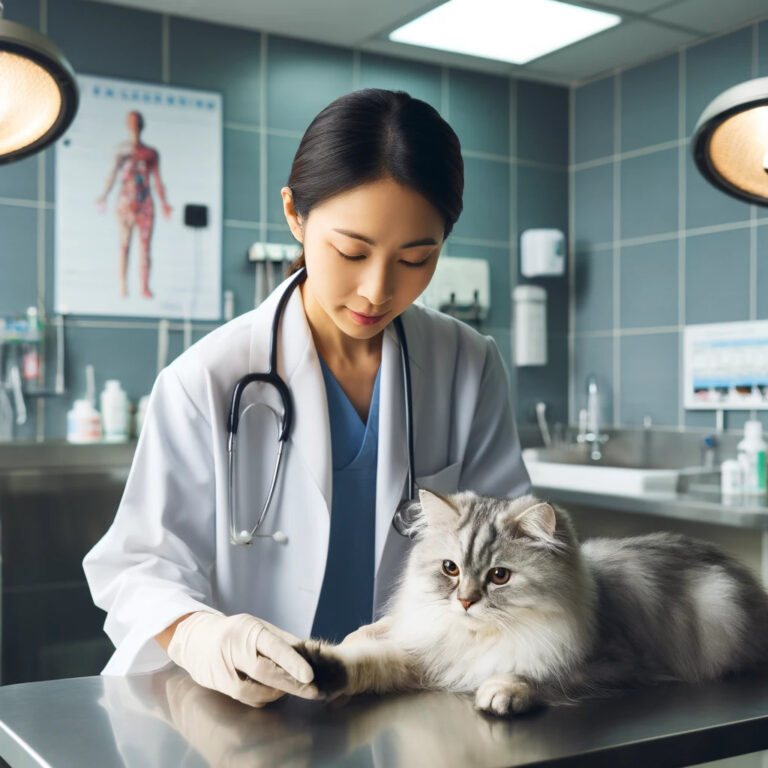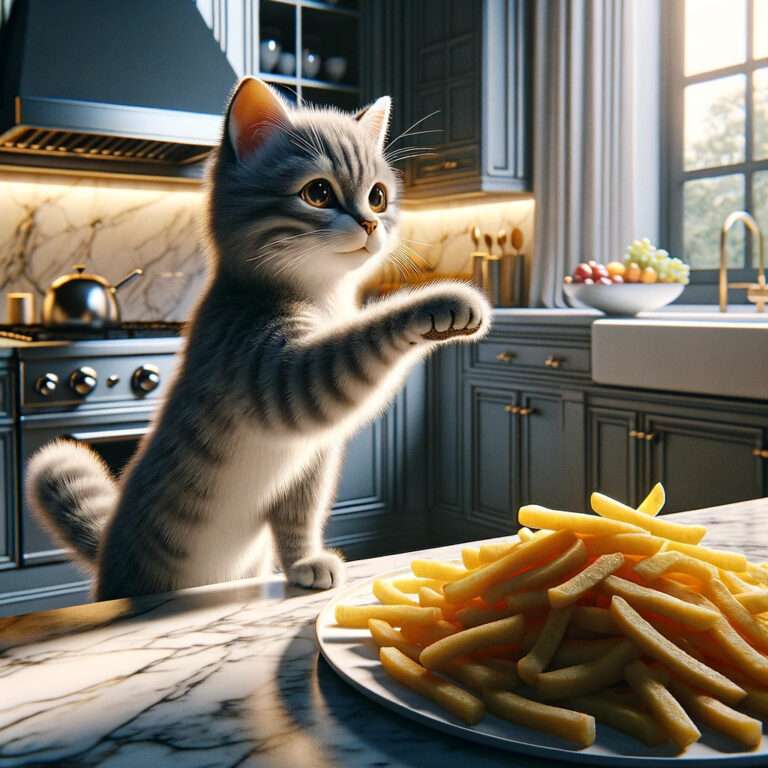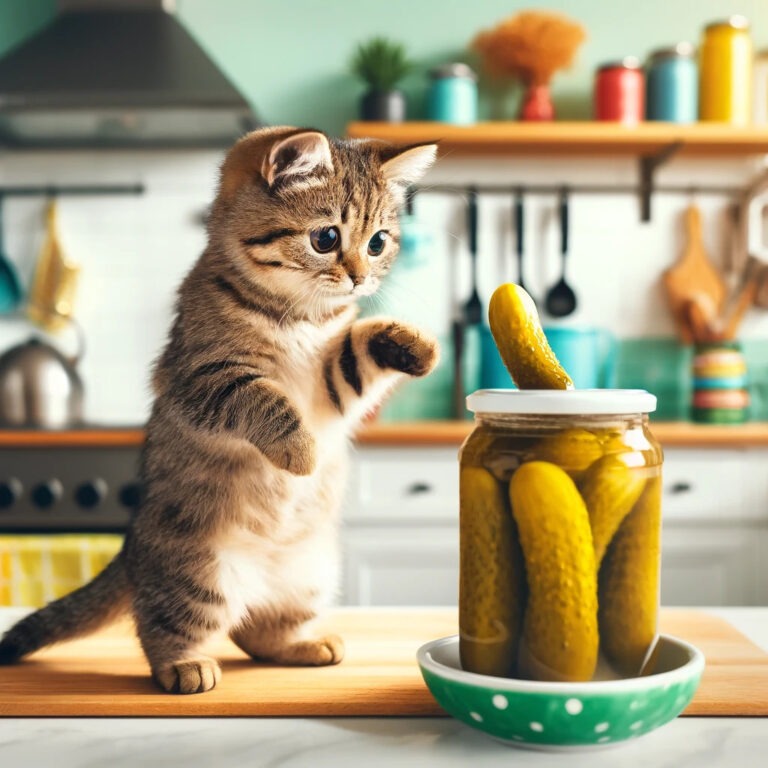Debating on feeding chia seeds to your cat? Being a responsible owner, find out about the nutritional advantages and potential risks of feeding chia seeds to your cat, plus serving suggestions.
Debating on feeding chia seeds to your cat? Being a responsible owner, find out about the nutritional advantages and potential risks of feeding chia seeds to your cat, plus serving suggestions.
In the world of pet nutrition, the quest for adding variety and health benefits to our furry friends’ diet never ends. Among the myriad of options, chia seeds have emerged as a popular superfood for humans. But does this popularity extend to our feline companions? Can cats eat chia seeds?
Yes, cats can eat chia seeds in moderation, offering benefits such as better digestion and a shinier coat. Ensure the seeds are soaked before feeding to prevent them from expanding in the stomach. Introduce chia seeds gradually to avoid any digestive upset. Always consult with a veterinarian before adding chia seeds to your cat’s diet.
With the collaborative efforts of our expert veterans and our years of knowledge, we have put a conclusion to the relationship between cats and chia seeds. including chia pets, chia cat grass, and more as well, to provide a clear understanding of what’s safe and what’s not with an insight into the nutritional values table.
Chia Seeds for Cats: Are they Nutritionally Beneficial?
Chia seeds can be a highly beneficial addition to your cat’s diet, offering a wealth of nutritional benefits. Their impressive nutritional profile is made of high levels of omega-3 fatty acids, fiber, antioxidants, and minerals. These nutrients specifically suggest potential health benefits for cats, including improved digestion, healthier skin and coat, and enhanced overall well-being.
Nutritional Benefits of Chia Seeds
Indeed chia seeds offer a pool of nutritional benefits for cats. The nutritional value of chia seeds is as follows:
| Nutrient | Amount per 100 grams |
| Calories | 486 |
| Carbohydrates | 12 grams |
| Fiber | 4 grams |
| Fats (including omega-3 fatty acids) | 74 grams |
| Protein | 5 grams |
Fiber
- Benefit: Supports a healthy digestive system, aids in toxin absorption, promotes healthy gut flora, and helps prevent diarrhea and constipation.
- Consideration: Due to cats being obligate carnivores, their digestive systems are designed to process meat more efficiently than plant-based sources of fiber. Thus, any fiber addition should be minimal to avoid digestive upset.
Antioxidants
- Benefit: Can reduce oxidative stress, potentially lowering the risk of chronic diseases and supporting overall health and longevity.
- Consideration: While beneficial, the exact antioxidant needs of cats are not as well-defined as in humans, making it important to ensure they are not over-supplemented.
Protein
- Benefit: Supplements the primary meat-based diet of cats, potentially aiding in satiety.
- Consideration: Animal-based proteins are more suitable for cats, providing all the essential amino acids they require. Chia seeds can complement but not replace these sources.
Vitamins and Minerals
- Vitamin A: Essential for vision, immune function, and skin health. Cats need preformed vitamin A from animal sources.
- Folate: Supports cellular health and DNA repair.
- Potassium, Iron, Magnesium, Manganese, Selenium, Zinc: These minerals are crucial for various bodily functions, including heart and muscle function, oxygen transport, metabolic processes, and bone health.
- Niacin, Phosphorous, Calcium, Copper: Important for energy production, bone health, muscle function, and cardiovascular health. According to a study, chia seeds were able to regulate calcium levels in just 4 weeks.
- Consideration: While chia seeds contain these nutrients, the bioavailability and appropriateness of these forms for cats may vary. It’s essential to balance their intake with the specific needs of felines in mind.
Amino Acids
- Benefit: Provides a variety of amino acids, supporting tissue development, growth, and repair.
- Consideration: Cats require specific amino acids like taurine, which chia seeds do not supply. Thus, chia seeds can offer additional nutritional benefits but cannot fulfill all amino acid requirements for cats.
But, can cats eat chia seeds without any risks?
Can Cats Have Chia Seeds Safely?
Yes, cats can have chia seeds safely if eaten in moderation. Chia seeds are non-toxic to cats and can be a healthy addition to their diet. However, the key is moderation and proper preparation. When introducing chia seeds to your cat’s diet, start with a small amount and observe for any adverse reactions.
Do Cats Enjoy the Flavor of Chia Seeds?
Yes, cats often accept chia seeds due to their mild, slightly nutty flavor, making them a well-tolerated addition to their diet.
How to Serve Chia Seeds Safely to Cats?
To safely serve chia seeds to cats, it’s crucial to soak chia seeds before serving them. Soaking helps prevent the seeds from expanding in the stomach, which could cause discomfort or even a blockage. A teaspoon of soaked chia seeds mixed into your cat’s food is a good starting point.
Can Cats Eat Chia Grass and Chia Sprouts?
Yes, they can eat chia grass and chia sprouts. Like chia seeds, are safe for cats in small amounts. They can provide a source of entertainment and nutrition for indoor cats. However, ensure that your cat doesn’t overindulge, as this could lead to gastrointestinal upset.
Are Chia Pets and Chia Cat Grass Safe for Cats?
Yes, chia pets, decorative planters that sprout chia, and chia cat grass are often marketed as fun and safe options for pets. While the chia plant itself is not toxic to cats, the concern lies in the potential for digestive issues if they ingest too much of the grass or the seeds in their dry form. As with chia seeds, moderation is crucial.
What Makes a Cat Graze on Chia Cat Grass?
Cats’ interest in chia grass is natural and often beneficial. They enjoy its taste and texture, and it can supplement their diet with essential nutrients like folic acid, aiding in oxygen transport and overall health.
Contrary to the belief that cats eat grass only to induce vomiting, chia grass also helps them pass indigestible parts of their prey, acting as a natural laxative. While chia grass is generally safe, excessive consumption should prompt a vet check to rule out any underlying issues.
Chia for Cats: Precautions and Considerations
While chia seeds and chia grass can be beneficial, it’s essential to consider a few precautions:
- Introduce Slowly: Gradually add chia seeds or chia grass to your cat’s diet to avoid digestive upset.
- Monitor Portion Sizes: Too much chia can cause bloating or constipation due to its high fiber content.
- Consult Your Vet: Always consult with a veterinarian before making significant changes to your cat’s diet, especially if your cat has existing health issues.
FAQs
Is It Safe to Give Your Cat Dry Chia Seeds?
No, avoid giving dry chia seeds to cats. They can absorb water and swell in the stomach, potentially causing blockages. Always soak them first.
How Much Chia Seeds Should You Feed Your Cat?
A safe amount is ½ teaspoon of soaked chia seeds for every 5 pounds of your cat’s weight. Start with a smaller amount to ensure they digest it well.
H3: What’s the Best Way to Serve Chia Seeds to Your Cat?
Soak the seeds in water, then grind and mix them into your cat’s wet food. You can start with ¼ teaspoon of chia seeds (soaked) to see how they like it, any discomfort, constipation or diarrhea.
TIP: You can mix it with meat broth for a better taste for your purring cat.
Final Thoughts
Can cats have chia seeds? Indeed, they offer a nutritious boost to your cat’s diet when introduced in small, monitored amounts. Emphasizing moderation and consulting with a vet are crucial steps for incorporating chia seeds or chia grass safely into their meals.










